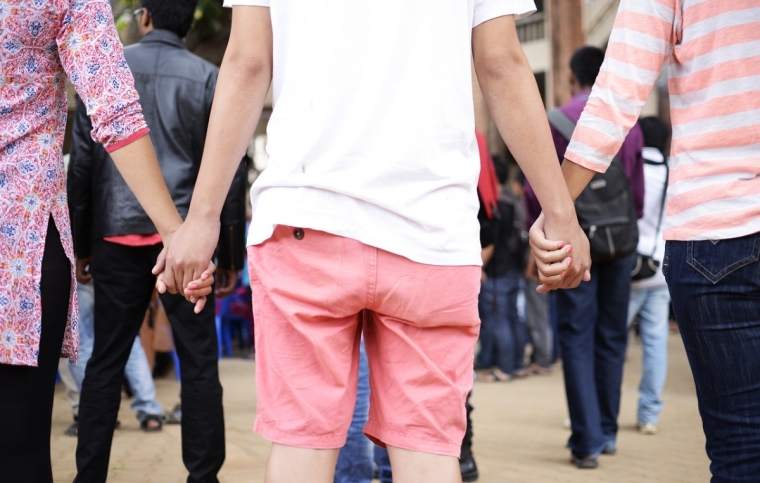

Volunteerism was once the heart-beat of community. We would go to our 9-5 jobs, and spare a few hours on the weekend for a good societal cause. We would cut oranges, make sandwiches, cook soup, turn snags, and have a laugh in the process.
We simply seemed to have the time, the energy and the passion to make a difference. We used to cherish the moments we spent together and we seemed to have more of those moments to cherish.
So is volunteerism dying out? I spoke to a mayor once who had anguish over the impression that his community used to be thriving with a culture of volunteerism. A decade on, most people simply have too many other pressing demands.
It's part of our culture
I think that Australian culture still loves the idea of volunteering. We love the opportunity of handing out a cooked meal to a homeless person, or providing shelter and counselling to someone in desperate need. Our Aussie culture has grown on the premise of helping the battlers, and getting them back on their feet. We inherently love the idea of volunteering, it is in our DNA.
It's just we don't have time or space anymore. We still love volunteering; we just hope someone else will do it for us.
I can think of friends who used to work set hours. Now their roster changes more than the weather in Melbourne. The pressure-cooker has been turned on, and people are trying to keep their jobs, balance their budgets, look after their families, save for a holiday, get the kids to dance class and make sure food is on the table at night-time. I know we had these challenges in years gone by, but I wonder whether culturally we have turned the pressure up so much, people are struggling not to implode.
As much as one may appreciate the giving of free meals for the hungry, and English classes for refugees, and a football clinic for underprivileged children, there are alarm bells that ring for people: If I can't manage my own life, how do I possibly have the ability to help others? If I can't even find enough time for my kids, how could I possibly find spare time to help someone else?
Volunteerism puts others first
It was once quoted, 'Your life is like a coin. You can spend it any way you want. But you can only spend it once.'
Volunteering is a choice we make, where in essence we put others first. I find some clear parallels in the gospel, where we read that Jesus laid down his life for others, and therefore we should lay down our lives for our brothers and sisters (1John chapter 3, verse 16). Now, that is counter-cultural. Today's rhetoric is about looking after yourself and your family, and when life is without any struggles, then and only then should you care about anybody else. God calls us to look out for others.
Create space to volunteer
The demands of life are high: pay the bills, respond to that email, return that call, clean that dish, wash that jumper and mow that lawn. Understandably we arrive home after a long day and volunteering is the last thing on our mind. Though, like all things that are meaningful, we need to work hard to create space.
I once heard, in relation to the book of Genesis, that the first thing God did when creating the universe was to create the space for the universe to exist. Space only comes when we re-prioritize what's important to us. This simple truth is worth remembering: If you value the opportunity to serve, you will find time for serving.
Volunteering does not have a hierarchy
The temptation when life is difficult is to hibernate until all your 'issues' are sorted. We ask, 'How could I possibly help someone in need, when I'm in need myself?'
Volunteering does not have a hierarchy of people who have it all together helping people who can't get it all together. Volunteers are on an equal footing with everyone else. It is simply one human being showing empathy to another human being. It is making a choice to support someone, even when you desire to be supported as well. It is not about waiting until you have your life together more than the person next to you, then climb up the hierarchical ladder and support someone else.
Real community engagement and development happens when the people of society as a whole realises the community is better off when people simply help other people.

It is time to push against the grain that says we need to live life for our own personal gain. It is time to re-embrace a dynamic volunteering culture, where we put the needs of others high on the agenda, and set aside the time, energy and passion to seek to make a difference to people in the world where we live.
Pete Brookshaw is the Senior Minister of The Salvation Army Craigieburn. He has a Bachelor of Business and is passionate about the Church being dynamic and effective in the world and creating communities of faith that are outward-focused, innovative, passionate about the lost and committed to societal change. He has been blogging since 2006 at www.petebrookshaw.com about leadership and faith.
Peter Brookshaw's previous articles may be viewed at http://www.pressserviceinternational.org/peter-brookshaw.html